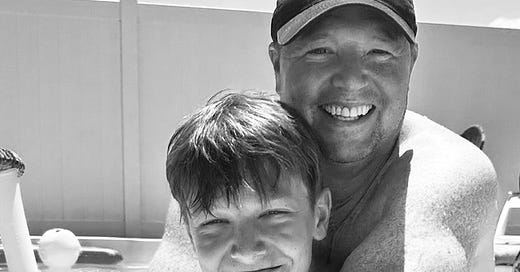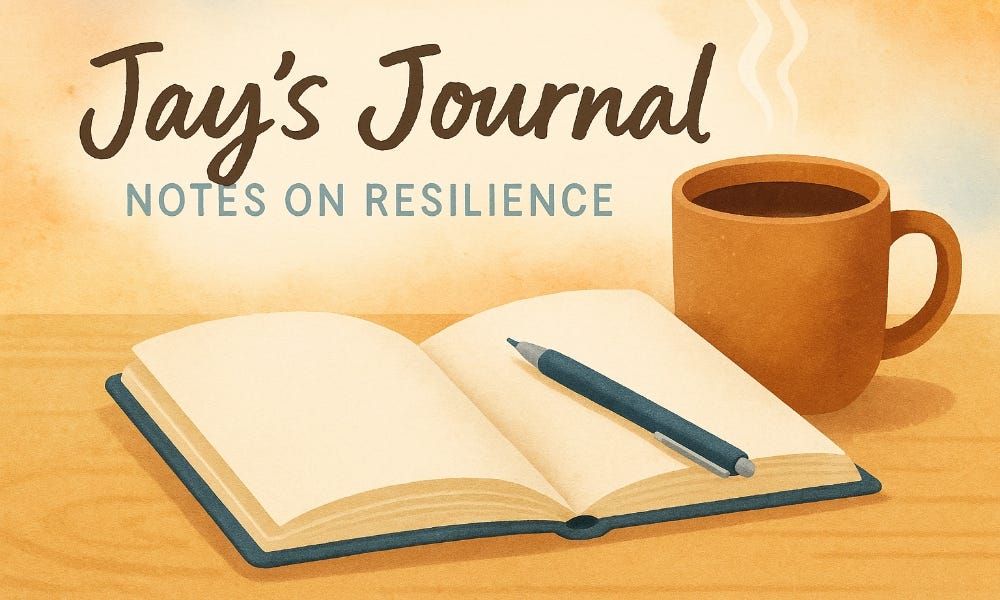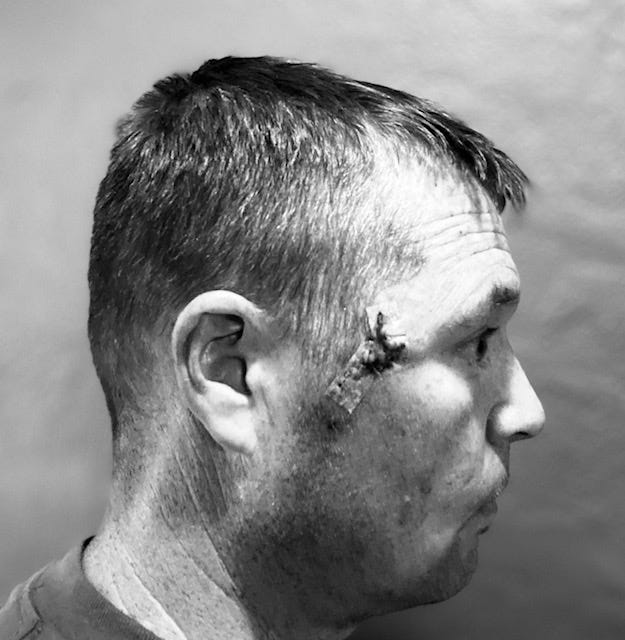📖 Is asking for help cheating?
Some days I feel like a lone island—except my island is slowly sinking, and I really should’ve packed less sarcasm and more patience.
Yesterday, I stared at the pile of dirty dishes—halfway through—as if it were a mountain of porcelain and plastic, and seriously considered writing a resignation letter to my own body. And then I did something radical: I asked for help.
Why is it so hard to admit we need a lifeline?
Why do we treat self-sufficiency like a moral virtue instead of an exhausting myth?
And who decided that doing it all alone is somehow more admirable than getting through it together?
Maybe we grew up on “pull yourself up” slogans. Maybe we fear looking weak. But here’s the truth: leaning on someone isn’t a confession of failure—it’s a resilient move.
Resilience isn’t about muscling through everything solo. It’s about recognizing that even strong people get tired, and asking for help is one of the most courageous things we can do.
You’re not alone in this.
I’m not alone in this.
And there’s something comforting—maybe even quietly heroic—about remembering that.
🤝 Resilience ≠ Going It Alone
We’ve been sold the myth that real strength is solitary. That “showing up” means doing it all yourself. But what if the loudest proof of resilience is saying, “I can’t do this alone”?
Resilience is not a solo sport. It’s a relay race where passing the baton counts as much as holding it. It’s gathering help, sharing burdens, and building a tribe of people who’ll laugh when you trip—and help you up.
🧠 Resilience by the Numbers: Mindfulness and the Brain Under Fire
There’s a researcher I admire named Dr. Amishi Jha, who’s spent years studying how the brain responds under pressure—and more importantly, how it bends without breaking.
In one of her most fascinating studies, she worked with U.S. Marines. Yep, the kind of people who voluntarily run toward things the rest of us cross the street to avoid. These Marines went through an 8-week mindfulness training program while preparing for deployment. And the results? Kind of astonishing.
After just two months of daily mindfulness practices, the group showed improvements in working memory (that’s the brain’s “scratchpad” for thinking clearly under stress), emotional regulation, and overall resilience. In other words: a few minutes of mental stillness helped them stay steadier in chaos.
I’m not a Marine. But I know what it’s like to feel under siege—by pain, fatigue, uncertainty, or just a relentlessly loud inner critic.
And let’s be honest: if mindfulness can help people crawl through the mud with 80 pounds of gear, maybe it can help me survive Tuesday.
This study reminds me that resilience isn’t just a personality trait you either have or don’t. It’s a practice. It’s trainable. And sometimes it looks like doing something really small—breathing deep, tuning in, finding a pocket of quiet in the noise—and trusting it’s rewiring something inside you.
What if the real strength isn't about powering through, but pausing on purpose?
You don’t have to be a soldier to take on life’s battles. You just have to keep showing up—with presence, with patience, and maybe with a few sticky notes reminding you to breathe.

Soft Pants👖 Strong Spirits 🔥Can't Lose!
💌 If this hit home…
Please share it with a fellow spoonie, warrior, or wonderfully tired human.
Or check out my books—resilience looks great on your nightstand
🎙️ Episode 68: What author or book has made you a more resilient writer?
In this episode, we crack open the covers of the stories that saved us, shaped us, and shoved us back to the page when we wanted to quit. Gail and Jay swap notes on the writers who lit a path when the writing life felt like walking blindfolded through a thunderstorm—with a leaky umbrella.
We talk about the books that built our resilience and the lines that felt like lifelines. Because even though reading and writing are solitary acts, the writer and reader need each other. It’s a quiet kind of companionship—but it’s real, and it’s what keeps us going. If you've ever been carried by a sentence, this one's for you.
Jay Armstrong is an award-winning author and speaker who refuses to be defined by his diagnosis of a rare neurological disease. Despite challenges with movement, balance, eyesight, and speech, Jay continues to press forward with determination, humor, and hope. As the leader of the Philadelphia Ataxia Support Group, he’s dedicated to helping others find joy, peace, and meaning in their lives, no matter the obstacles they face.









